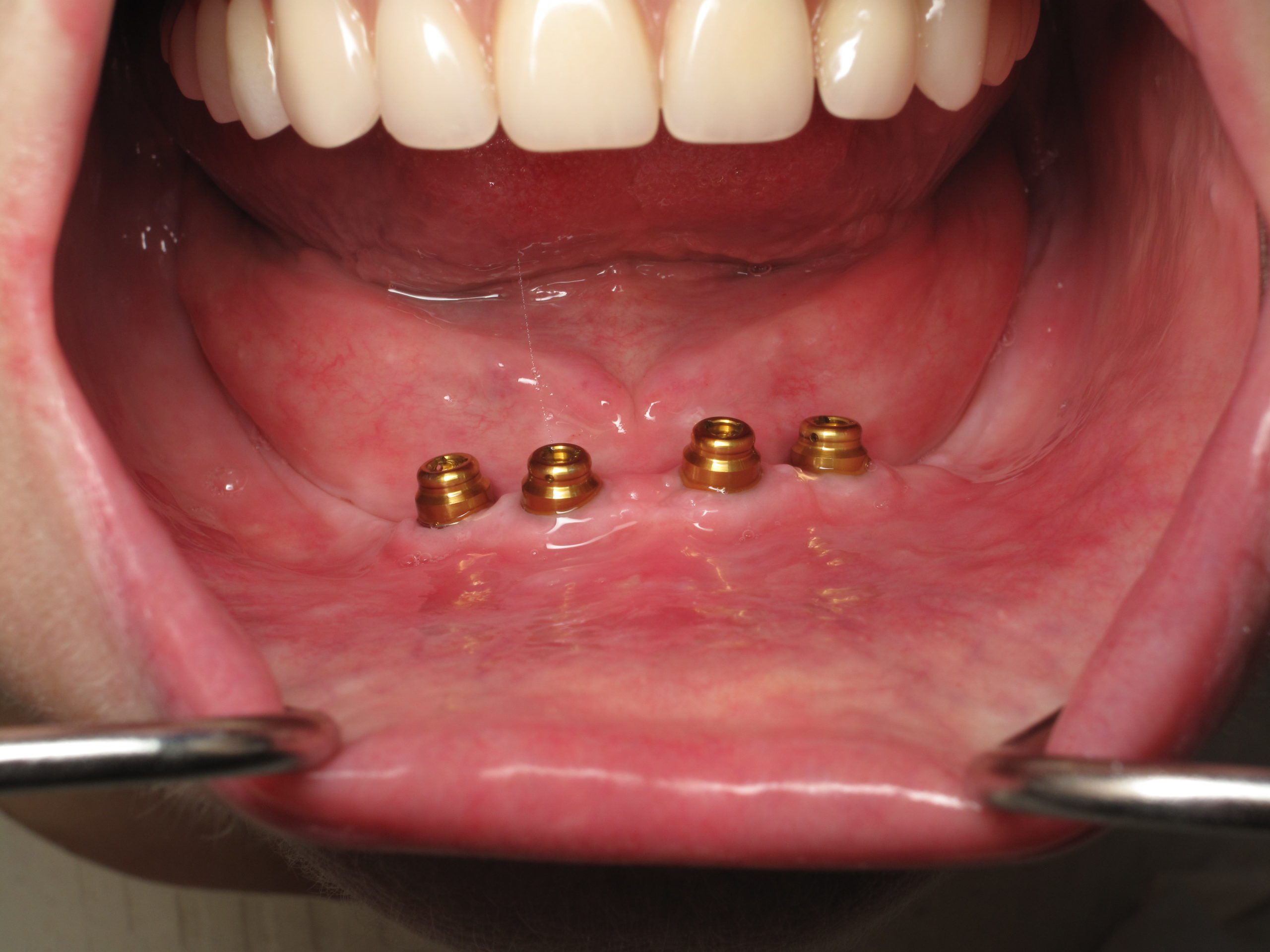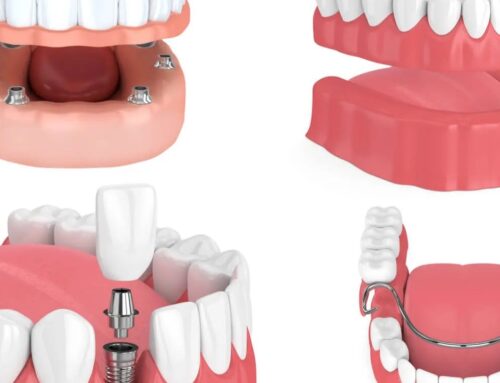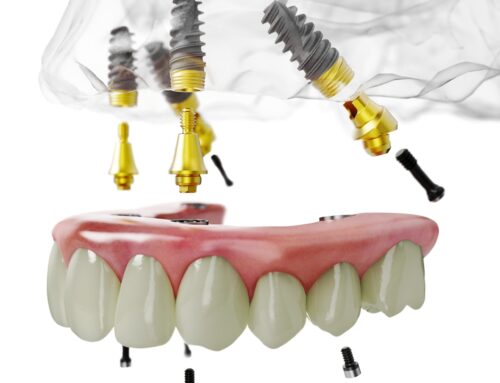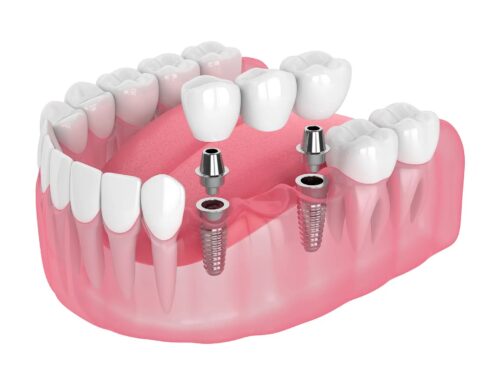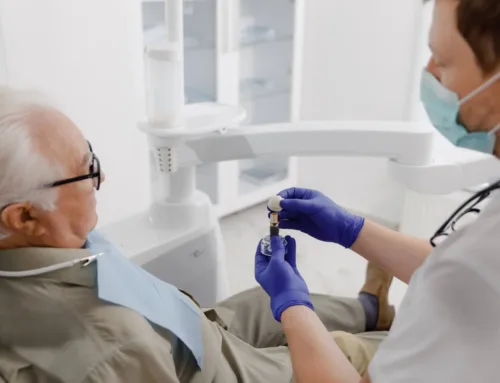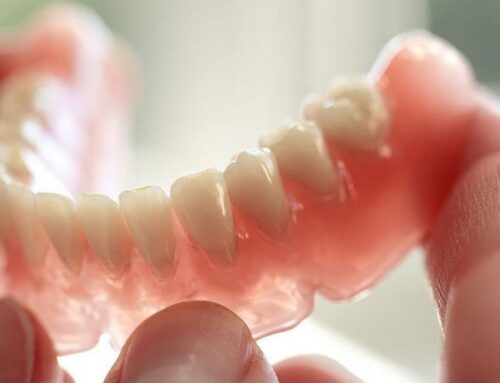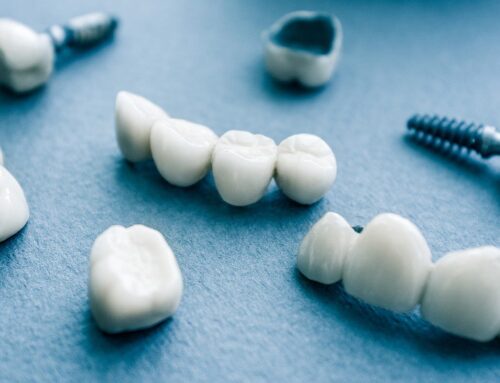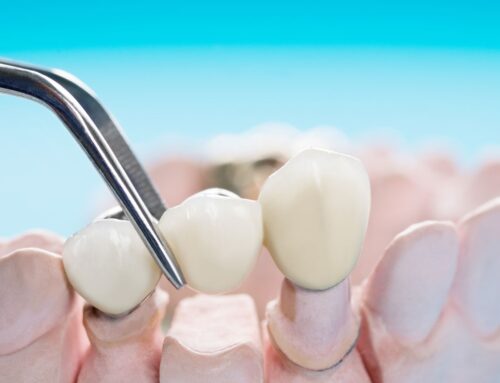Understanding Denture Locator Implants and How They Work
Dental patients who have experienced multiple lost teeth, damaged gums, or recurring dental repair and reconstruction needs are often guided towards dentures as a simpler and more effective way to manage their dental care. Dentures are a common solution to these types of problems and have been well refined over the years to be better looking and more comfortable than ever. However, many long-term denture wearers have experienced some frustrations with loose-fitting dentures or misalignment when wearing their dentures. Fortunately, these problems are easily solved with denture locator implants.
In this article, we will help explain how denture locator implants work to solve some of the most common challenges experienced by denture wearers, and how you can get started down the path to obtaining a set of dentures that fit better and look better than any previous sets you’ve had. First let’s take a look at some of the more common struggles that denture wearers face with traditional denture designs.
Common Problems with Traditional Dentures
While there certainly have been many positive advancements made in the design, construction, and materials used to manufacture full and partial dentures, there are still some limitations in their form and function that prevent them from being the perfect solution for all patients. Primarily, these limitations stem from the fact that as your jaw, bones, and gums continue to change over time, your dentures will eventually start to not sit properly or securely in your mouth. This requires your dentures to be re-made from time to time in order to correctly sit on your gums and avoid problems with soreness, irritation, and discomfort.
When your gums and jaw change shape over time and your dentures no longer fit securely, you will also end up with visual misalignment of your dentures and it will impact the appearance of your smile. These two common problems are all but inevitable, as there is no way to prevent them from changing shape of your gums and jaw as you age. The only way to remedy the situation using traditional dentures is to have them re-made each time they begin to fit improperly. This can be a frustrating situation to deal with and can also be quite costly in the long run.
What Are Denture Locator Implants?
Fortunately, traditional dentures are not the only option that is available for patients who are in need of replacement teeth. Denture technology has evolved significantly, and there are new methods of attaching dentures within the mouth that have been designed to affix a patients’ dentures more securely and more consistently through the use of denture locator implants.
Denture locator implants are a specialized set of dental implants that are physically inserted by a dental surgeon at strategic points in the jaw to provide solid, fixed-position anchors. These anchors are what is used to physically connect the denture appliance to the jaw. Dentures that are secured to the jaw using this type of implant connection are commonly known as ‘overdentures’.
How Do Denture Locator Implants Work?
Denture locator implants are placed in very specific locations within the jaw in order to securely and effectively hold the overdentures in place. The number of implants used depends on factors such as the number of teeth being replaced by the overdenture, as well as the size and shape of the jaw.
In addition to influencing the number of implants that are needed, the size and shape of the jaw will also dictate the angle and orientation at which the implants are inserted in to the jawbone. The goal of your dental surgeon will be to provide you with the most secure and long-lasting connection for your overdentures, so they will carefully plan their approach on how many implants to use, and how they will be positioned to provide the best possible results.
The visible end of each denture locator implant is shaped to plug solidly in to the connections present in the overdenture appliance. These implant connections are usually capped with a soft material that provides a level of shock absorption and flexibility to the overdenture when pressure or movement is applied in order to avoid pain or discomfort while talking, eating, and drinking.
Advantages of Implants for Attaching Dentures
Patients who experience traditional dentures prior to switching to an implant-based overdenture system report much greater comfort and satisfaction as a result. Due to the connection being much more solid and secure than traditional denture adhesives, patients are able to more effectively and confidently eat a wider variety of foods by reducing the looseness and unnecessary movement that can occur with traditional dentures. These advantages result in patients being able to enjoy a healthier and more robust diet thanks to the added stability, and greater overall satisfaction with their lifestyle.
One major advantage that denture locator implants provide over traditional dentures is the elimination of the need for additional adhesive products, such as a denture paste or adhesive powder, that are used to hold the dentures in place. The physical connection between the overdenture and the implant is secure and solid enough to hold them in place with no additional adhesive products needed. This saves patients money and adds a lot of convenience in maintaining and cleaning their replacement teeth.
Cleaning the overdenture and the denture locator implants is easy and simple. Use a gentle denture cleanser and a soft bristled brush to clean the overdenture, along with flossing between the replacement teeth. Your gums, tongue and the implants themselves will also require regular cleaning using gentle but effective oral cleanser and soft bristled brush.
Other advantages from implant-based dentures include reduced bone loss in the jaw, known as resorption. Traditional dentures don’t provide the same level of stimulation to the bones of the jaw from chewing that natural teeth provides, and as such there is a natural loss of bone mass as a result. Implants act much more like natural teeth and provide greater stimulation to the surrounding bone structure, reducing the speed and severity of bone resorption over time.
Getting Started with Denture Locators
If you are currently fitted with traditional dentures or are in need of a solution to replace multiple lost teeth, then denture locator implants combined with an overdenture may very well be the best choice for you. However, before you can commit completely to a set of implant-secured overdentures, you will need to have an in-depth dental consultation to discuss your goals, health history, and available options with your dentist.
Every patient needs a customized plan that meets their needs and takes in to consideration all the factors that determine what the best approach to replacing lost teeth will be. During your consultation, your dentist will run through all your potential options and describe them in detail, including all the potential advantages and disadvantages that they may have for you and your lifestyle. It’s important to consider all the available avenues and make the choice that is right for you.
To start the process of evaluating your choices, contact us today to arrange for your free, no-obligation consultation. We will provide answers to all the questions you may have about denture locator implants, overdentures, and any other treatments that you may be considering. It’s a big decision, and we want to make sure that you are fully equipped to make the right choice.
Appointment Request
If you’re interested in any of our procedures, and would like to meet with one of our dentists to discuss options, costs and get additional information, complete this short form and we’ll give you a call to arrange for a no-obligation appointment at our Barrie clinic.
